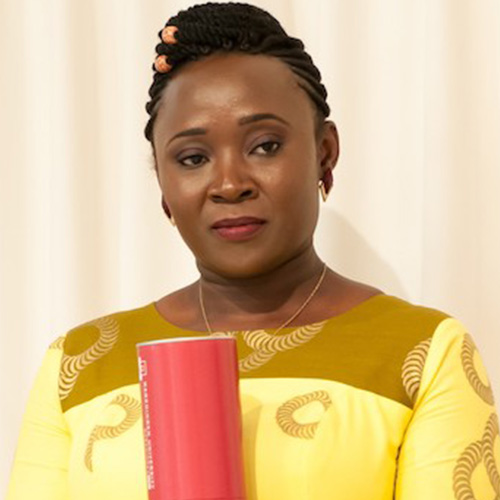
Stella Kabiri-Marial
Country (Nationality)
Uganda
Grantee Title
Project - Plasma N2: Emissions saving through production of low-cost Fertilizers using air as a raw material
Grantee Description
Kabiri-Marial is a Senior Research Officer and Programme Leader for Technology Promotion and Outreach at Mukono Zonal Agricultural Research and development institute (MUZARDI) of NARO Uganda. She completed her PhD at Wageningen University, in the Netherlands in 2017. Her research broke ground on the “Ecology and Biology of Rhamphicarpa fistulosa, a new parasitic weed of rain-fed rice in Sub-Saharan Africa”. Her study was funded by NWO-WOTRO Science for Global Development, in the project PARASITE, “Preparing African rice farmers against parasitic weeds in a changing environment”. Her findings highlighted the future expansion of parasitic weeds considering climate change, from which she published 4 papers and a book.
Stella currently coordinates scaling-up and scaling-out proven agricultural technologies through farmer adaptive research, in the Lake Crescent Agro-ecological Zone of Uganda.
She aims to increase utilization of improved technologies and innovations by
specifically rural communities in the face of Climate change. Stella has published widely in peer reviewed journals and presented her research findings at several international conferences. Apart from research, she is also an external examiner for PhDs at Makerere University and mentors’ undergraduates interested in early careers in science.
Project - Plasma N2: Emissions saving through production of low-cost Fertilizers using air as a raw material
This project is developing a green-energy driven technology solution to support the on-site fertilizer production in Africa, providing cost-affordable, green-made Nitrogen fertilizers to local small-scale farms. The research is based on nitrogen fixation with non-thermal Plasma technology. Using nothing else but air as a raw material, NOx gases (mixture of NO and NO2) are produced through a chemical reaction in Plasma which is generated from a variety of renewable energy sources (solar, wind or bio-energy). This research will enable the production of low-cost liquid fertilizers on demand to be applied directly to the soil, dissolved into irrigation water, or foliar application.
The prospect is to demonstrate a way out of the industrial Haber-Bosch process that produces 130 million tons of Ammonia (NH3) per year but is one of the leading environment polluters. Production of fertilizers through this process consumes approximately 1 -2% of the world’s total energy, 3-5% of the world’s total natural gas output and emits 300 million tons of CO2. An alarming factor for global warming. Using new opportunities in renewable energy and innovative process design concepts, this project bears promise to lead to new paradigms of Green chemistry technologies for sustainable agricultural systems in Africa.
